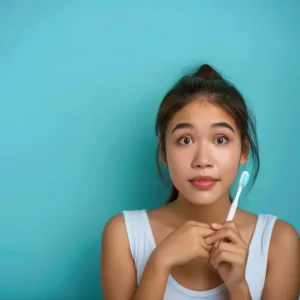Preconception nutrition is an important issue for both men and women and good fertility health is tied very closely to what food and nutrition you consume. Making sure that you eat the right things can only help you increase your chances of having a baby. However, at the same time, there are nutritional things that can be consumed which can hinder fertility and must be avoided. This is why many couples choose to detox before conceiving.
Zinc and Fertility
There are many preconception nutrients that are important. In this article we focus on the importance of zinc and fertility. We look at the importance of making sure that you have enough zinc male and female diets and why you should make sure that you take on board the optimum amount of zinc when trying to conceive. Certainly, this can help if you are trying to conceive quicker.
How Zinc Affects a Woman’s Fertility
For women, zinc plays a major part in maintaining good reproductive health. Some of the most important areas for women are:
- Egg production: in order to produce mature eggs for fertilisation, zinc is needed by the body.
- Hormone regulation: hormones such as oestrogen, progesterone and testosterone are kept at stable levels during the entire menstrual cycle by a number of minerals, including zinc.
- Helping to prevent miscarriage – low levels of zinc have been linked directly to miscarriage in the first few weeks of pregnancy, according to research carried out by US experts.
- Helping to reduce the size of fibroids. Fibroids are non-cancerous tumours that grow in or around the womb. A dose of zinc each day can help lower the size of inflamed fibroids, increasing the chances of pregnancy occurring.
Zinc and Sperm Production
Zinc and fertility are closely related for men too. When it comes to sperm production, Zinc plays an important role in sperm activation. Sperm can become damaged by harmful chemicals in the environment, and for this reason, nutritionists recommend taking just 15 mg a day – the daily recommended amount in order to repair damaged sperm.
Sources of Zinc in Food
Some of the best sources of zinc in food include red meat, whole grains, pulses and seafood. Oysters are a great source of zinc (now you know why they have such a reputation as aphrodisiacs). Some dairy products, such as cheese, can be useful in providing lower amounts of zinc.
Trying to conceive during coronavirus? Zinc might just help
A new study, published in 2021, has suggested that people suffering from fertility issues during the coronavirus pandemic can be aided with the consumption of Zinc. The mineral can prevent mitochondrial damage in young eggs, and sperm cells. The new study was published in the medical journal ‘Reproductive Sciences’.
Making Sure You Get Enough Zinc
We offer a number of fertility vitamins that contain zinc. If you are worried that your normal diet does not give you enough zinc, taking a vitamin or supplement may be the best way forward.
Pregnacare Conception is one of our most popular fertility vitamins for women. It contains many of the vital vitamins and nutrients that are vital when trying to conceive. 15 mg of zinc is contained in every daily dose of Pregnacare Conception. This is the recommended daily amount.
Also for women, Seven Seas Trying for a Baby vitamins and mineral also contain zinc, as they recognise the importance of zinc and fertility. Each Trying For A Baby tablet contain 10 mg of zinc in each daily dose.
Male fertility supplements such as Wellman Conception, contain 15mg of Zinc. You really don’t need to take any more zinc than this – experts warn that anything more than a daily dose of half a gram of zinc can cause problems with how the body metabolises copper. 30mg of zinc per day is the maximum advisable amount when it comes to zinc and fertility.
Photo: Image courtesy of Simon Berry on Flickr
This post first appeared in November 2017 and has been updated since.
Zoom Baby is a leading supplier of Pregnancy Tests and Ovulation Test Kits





